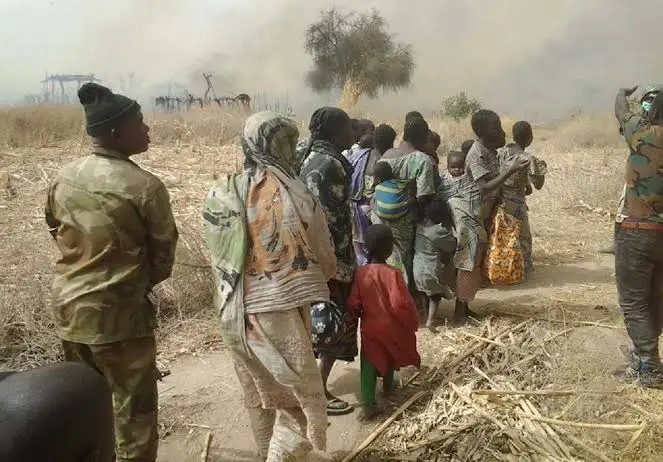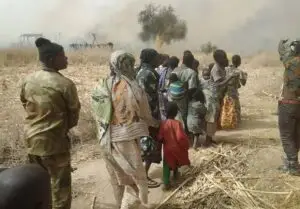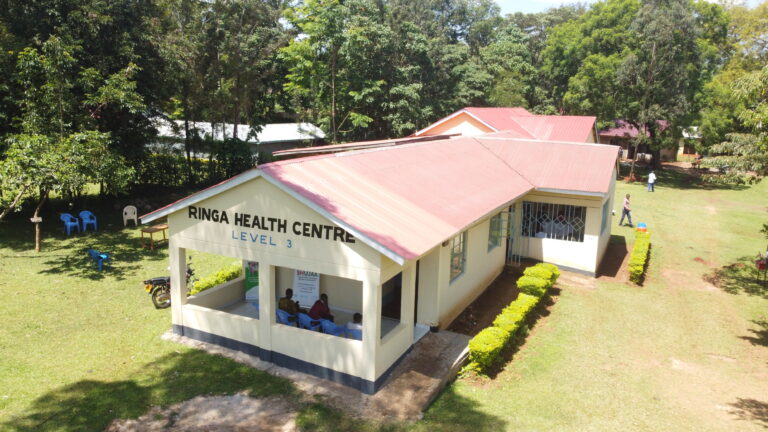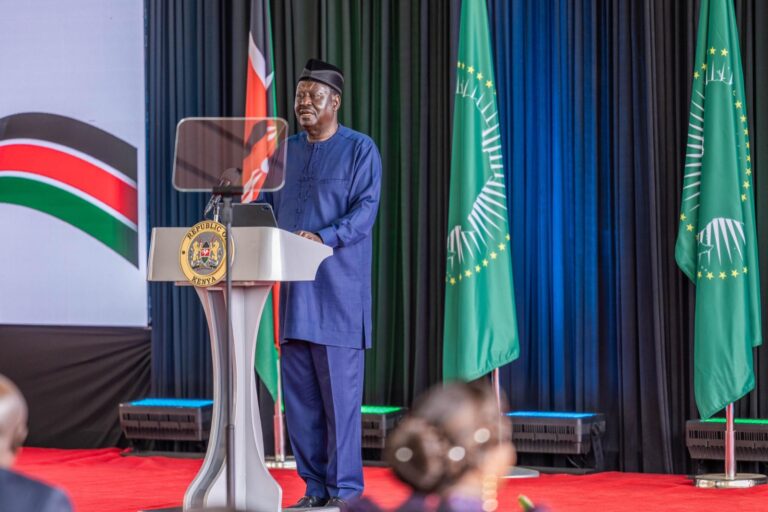
Civilians in Nigeria resort to safety after their homes were brought down by armed militia in North – Western Nigeria
Nigeria has been embroiled in a devastating security crisis for over 15 years, with civilians bearing the brunt of violence from armed bandits, extremist groups like Boko Haram, and a government that has struggled to provide protection. The United Nations Office for the Coordination of Humanitarian Affairs (OCHA) reports that over 8.3 million people are in urgent need of assistance, with women and children making up more than 80 percent of those affected.
The origins of the violence are complex. In central and north-western Nigeria, tensions between farming and herding communities have escalated, giving rise to armed bandit groups. These groups, heavily armed and increasingly brutal, have terrorized rural communities with kidnappings for ransom, murders, and other violent acts. Ibrahim Bello, a farmer from Zamfara State, shared his experience: “We cannot go out at night. The bandits come and take everything—our crops, cattle, money. We live in constant fear.” The violence has forced many farmers to abandon their land, further deepening the humanitarian crisis.
In northern Nigeria, Boko Haram has continued its insurgency, originally launched in 2009. The group’s goal is to overthrow Nigeria’s secular government and establish an Islamic state. Over the years, the insurgency has resulted in the deaths of tens of thousands and displaced over 2 million people. Dr. Aliyu Musa, a conflict resolution expert, explained, “Boko Haram thrives on the breakdown of state authority, which worsens the economic situation. The group targets vulnerable youth, especially in the northeast.” Boko Haram’s tactics have included suicide bombings, abductions, and attacks on civilians, religious leaders, and government infrastructure.
The consequences of the ongoing violence on civilians have been devastating. Aisha Saleh, a mother of five from Borno State, recalled her family’s flight from their village: “We fled with only the clothes on our backs. We left everything behind. My children are traumatized. They can’t sleep at night.” The Internally Displaced Persons (IDP) camps in Maiduguri, Borno’s capital, are overcrowded and lack basic necessities like food, water, and healthcare. Aid workers in these camps report widespread malnutrition and violence, particularly against women. A local aid worker shared, “The camps are overflowing. Many women are subjected to sexual violence, and the lack of medical care makes the situation even worse.”
Children have been particularly vulnerable in this conflict. Since 2014, Boko Haram has abducted more than 1,600 children, many of whom are forced into the group as child soldiers. Mohammed Sani, a 15-year-old who managed to escape, recounted his ordeal: “They took us into the forest and forced us to carry arms. I ran when I had the chance.” His story highlights the tragic fate of many children caught in this conflict.
The Nigerian government’s response has been military operations aimed at containing the violence. However, these operations have been marred by accusations of human rights violations by security forces. Amnesty International and Human Rights Watch have reported cases of extrajudicial killings, torture, and arbitrary detention by the Nigerian military.
In one shocking report, Reuters uncovered evidence that Nigerian security forces ran a covert abortion program in the states of Adamawa, Borno, and Yobe, where thousands of pregnancies were terminated among women abducted, raped, and forcibly married by Boko Haram fighters. The Nigerian military has denied these allegations, but human rights groups continue to call for independent investigations.
The International Criminal Court (ICC) has also been involved in investigating the crisis. In December 2020, the Chief Prosecutor of the ICC confirmed that there was sufficient evidence to believe that both Boko Haram and Nigerian security forces had committed war crimes and crimes against humanity.
The ICC’s Deputy Prosecutor, James Stewart, visited Nigeria in March 2024 to discuss the investigation’s progress. During his visit, Stewart emphasized the importance of holding all perpetrators accountable, regardless of whether they are state or non-state actors.
The ongoing violence in Nigeria highlights the urgent need for accountability and justice. Without significant reform and a commitment to human rights, the crisis is likely to continue. Millions of civilians remain at risk, and their suffering must not be ignored.
At Africa Feature Network, we stand for justice and human rights. We call on the international community, governments, and civil society to take immediate action to support those affected by this crisis. We advocate for a thorough investigation into human rights violations and urge the Nigerian government to prioritize the protection of its citizens. It is time to act. The people of Nigeria deserve a future free from violence, displacement, and fear.



